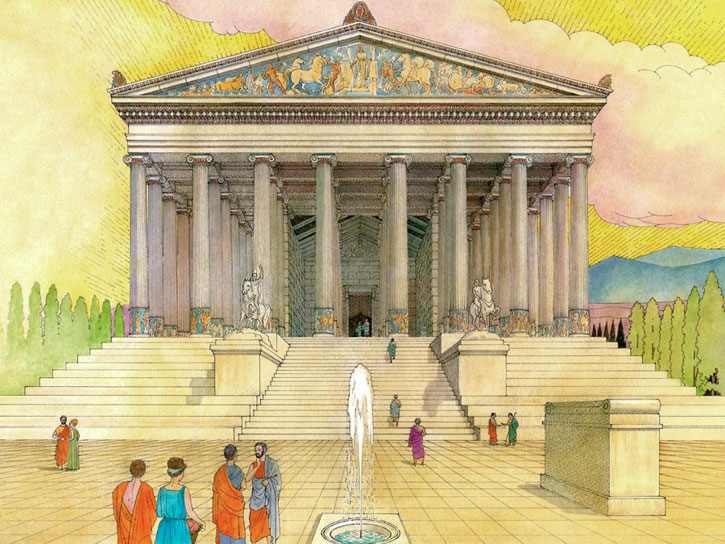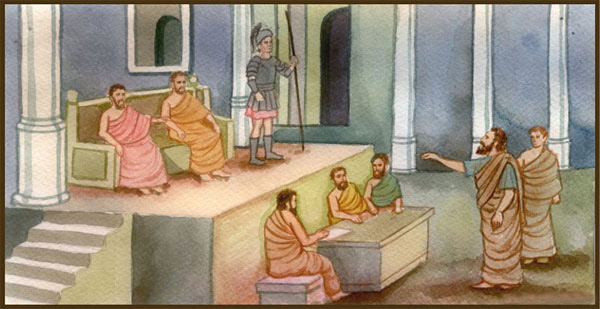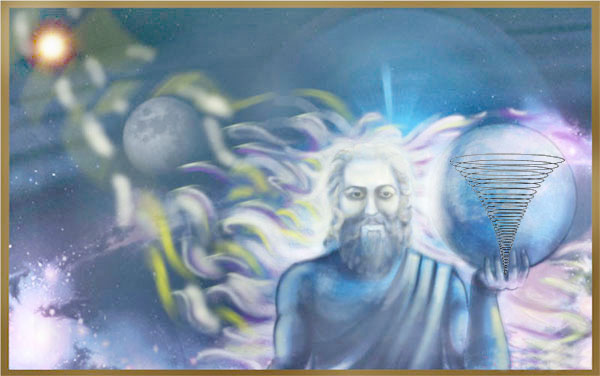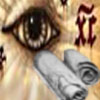Anaxagoras of Clazomenae
 “Men would live very peacefully if these two words – my and yours – were taken away,” said Anaxagoras of Clazomenae, a lesser known but important pre-Socratic thinker. Two words from his quote- ‘my’ and ‘yours’ form
“Men would live very peacefully if these two words – my and yours – were taken away,” said Anaxagoras of Clazomenae, a lesser known but important pre-Socratic thinker. Two words from his quote- ‘my’ and ‘yours’ form  the epicentre of most evils to date, including greed, hatred, jealousy and conflict that can sometimes assume dangerous proportions.
the epicentre of most evils to date, including greed, hatred, jealousy and conflict that can sometimes assume dangerous proportions.
Anaxagoras’ aphorism was not based on conflicts or jealousy and other inherent emotions of humans. Instead, his axioms revolved around the theory that everything in this world was composed of similar elements or ingredients, that nothing was large or small. Everything in the world was a part of the greater cosmos, which collectively controlled the minds of all humans. By this corollary, a person could own or lose nothing. Hence, claiming to own an object or saying it belongs to someone else, was wrong, Anaxagoras propounded. He said, the common human notion that they can possess material things in the world, was a fallacy based on wrong perceptions.
Anaxagoras was born about 500 B.C. into a wealthy family in the Ionian neighborhood of Smyrna, now Turkey. His work was described by Proclus, the last major Greek philosopher (c. 450 A.D.). He fully embodied and embraced the spirit of Ionian philosophy, evidenced by his early abandonment of possessions and wealth in pursuit of the study of science and mathematics.
Around 480 B.C. Anaxagoras was active in Athens as a thinker and teacher. Some of his contemporaries wrote he was rather young at the time and that he held views that were extremely controversial during the era. Despite this, Anaxagoras did find a sizeable following to merit being called a teacher and thinker. Indeed, some historians, including Diogenes Laertius, term Anaxagoras as a progenitor to ancient Athens becoming a seat for thought, study of the human mind and its various actions.
 Anaxagoras overlapped and lived after the time of Pythagoras and greatly expanded upon his mathematical cannon; however, Anaxagoras’ preaching about the universe, human mind and its functioning were viewed as abject impiety by Athenian aristocrats. In about 450 B.C., he was imprisoned by Pericles’ political opponents for claiming that the sun was not a god (it was a “red-hot stone”), and that the moon shines by reflected light. Although later released and exiled, the reasons given for his imprisonment are revealing: he had violated a law allowing for prosecution of any Athenian citizen (or foreigner) who did not practice religion and taught theories about “the things on high”. He was charged and tried in court. Anaxagoras refused to reject his theories, instead extolling them before the judges and jury which sentenced him to death. The great Athenian administrator, Pericles, who was an admirer and ardent follower of Anaxagoras, arranged safe passage to Lampsacus for Anaxagoras and his followers.
Anaxagoras overlapped and lived after the time of Pythagoras and greatly expanded upon his mathematical cannon; however, Anaxagoras’ preaching about the universe, human mind and its functioning were viewed as abject impiety by Athenian aristocrats. In about 450 B.C., he was imprisoned by Pericles’ political opponents for claiming that the sun was not a god (it was a “red-hot stone”), and that the moon shines by reflected light. Although later released and exiled, the reasons given for his imprisonment are revealing: he had violated a law allowing for prosecution of any Athenian citizen (or foreigner) who did not practice religion and taught theories about “the things on high”. He was charged and tried in court. Anaxagoras refused to reject his theories, instead extolling them before the judges and jury which sentenced him to death. The great Athenian administrator, Pericles, who was an admirer and ardent follower of Anaxagoras, arranged safe passage to Lampsacus for Anaxagoras and his followers.
Anaxagoras used his knowledge of geometry to offer the first accurate explanation for both solar and lunar eclipses, and also developed a model for solar system evolution not improved upon for over two thousand years. The latter model involved a spinning “vortex” that flings materials outward from a central origin (anticipating the Newtonian concept of centrifugal force). In the process, materials of differing composition defined as aether (hot dry air), water, and earth (stones), separated from one another to be distributed in various regions arranged about the center. During this process, heavy matter accumulated in the center as earth. The outward ejection of fiery aether produced hot stones from the earth that became stars.
 Anaxagoras postulated that this “vortex” mechanism was set up by something called nous. Nous was translated as “mind” or “reason”. Initially, according to this concept, all things were together, matter was a homogeneous mixture. It was nous that created the conditions (the vortex) by which matter could separate into its essential “elements” (a term coined later by Plato). It is not hard to recognize in this concept, the four natural elements – earth, fire, water, and air – expounded upon by Empedocles (a contemporary of Anaxagoras), and advanced later, somewhat modified, by Plato and Aristotle.
Anaxagoras postulated that this “vortex” mechanism was set up by something called nous. Nous was translated as “mind” or “reason”. Initially, according to this concept, all things were together, matter was a homogeneous mixture. It was nous that created the conditions (the vortex) by which matter could separate into its essential “elements” (a term coined later by Plato). It is not hard to recognize in this concept, the four natural elements – earth, fire, water, and air – expounded upon by Empedocles (a contemporary of Anaxagoras), and advanced later, somewhat modified, by Plato and Aristotle.
Anaxagoras also dabbled in biology, suggesting that nous, the power of mind, not only created the world, but also controlled the growth of living things. Organisms used nous to coax nourishment from ingested matter. Note that nous can also be defined as “divine mind”, suggesting that Anaxagoras may not have divorced himself entirely from the concept of a “spiritual force” initiating the universe. Yet his ideas do not postulate the intercession of anthropomorphic gods such as Zeus. As a strict Ionian, he probably saw nous as a natural force, the dominant natural force.
After exile from Athens, Anaxagoras returned to Ionia where he founded a school at the Greek city of Lampsacus, Mysia on the Hellespont (strait between the Sea of Marmara and the Aegean Sea). Before he died (428 B.C.) he purportedly was asked, “What is the point of being born?” He is alleged to have replied, “The investigation of the sun, moon, and heaven.”
Citations:
Aaboe, Asger (2001) Episodes from the Early History of Astronomy: Springer-Verlag, New York, 172pp.
Casson, Lionel (2001) Libraries in the Ancient World: Yale University press, New Haven, 177pp.
Evans, James (1998) The History and Practice of Ancient Astronomy: Oxford University Press, New York, 480pp.
Hale, William Harlan (2001) Ancient Greece: Horizon, American heritage, Inc., 254pp.
Lindberg, David C. (1992) The Beginnings of Western Science: The University of Chicago Press, 455pp.
SimplyKnowledge “Anaxagoras” SimplyKnowledge.com, Web. 2 Jan 2016.
Posted in Other Topicswith comments disabled.





